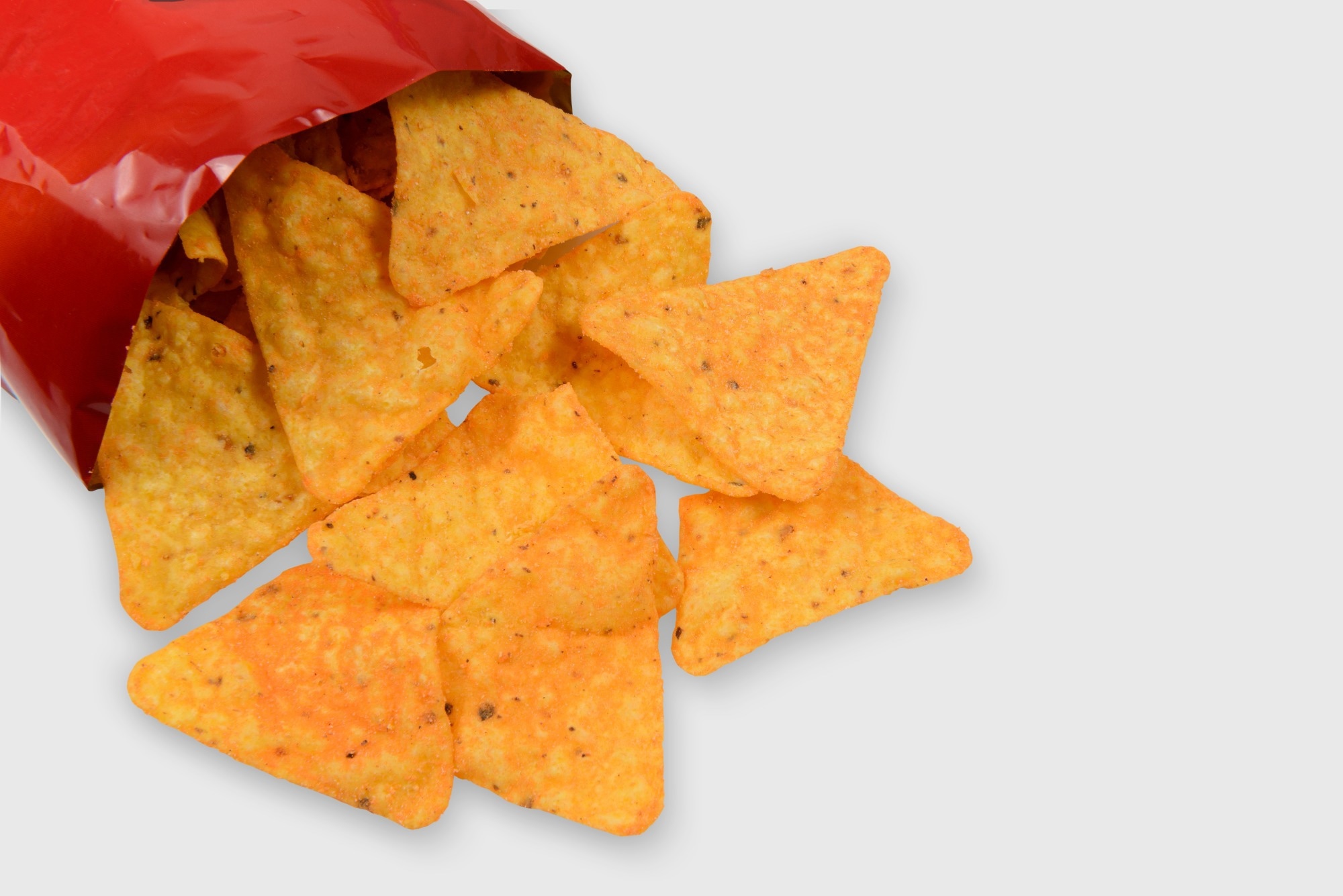Overweight and obesity continue to rise around the world, leading to various health issues such as heart disease. Scientists have found that even young people (age 18 to 30) who are at a medically recommended weight are at a high risk of transitioning to overweight or obesity over the next quarter-century.
Poor dietary practices among adolescents and young adults in the United States have been well documented. More than two-thirds of their EI is thought to come from UPF, with little to no whole foods. Scientists are concerned that these foods can modify how people make diet-related decisions and lead to overweight and obesity.
 Study: The influence of ultra-processed food consumption on reward processing and energy intake: Background, design, and methods of a controlled feeding trial in adolescents and young adults. Image Credit: Celso Pupo / Shutterstock
Study: The influence of ultra-processed food consumption on reward processing and energy intake: Background, design, and methods of a controlled feeding trial in adolescents and young adults. Image Credit: Celso Pupo / Shutterstock
UPF foods have high rewards but little nutrition
Research on humans and rats has shown how processed foods can affect the dopamine system in the brain. Rats fed bacon and frosting gained weight rapidly, which was thought to be related to lower functioning of the striatum’s D2 dopamine receptors (D2R) present in the striatum, an area in the brain associated with moderating food intake and reward.
Animals fed high-sugar diets and humans exposed to high-fat, high-sugar foods show similar effects. The finding that humans with high body mass index (BMI) have lowered D2R function points to the role of UPF in increased EI, which could lead to overweight and obesity.
However, only one trial has examined this relationship in adult humans, and no research has focused on how UPF consumption in early adulthood could change brain chemistry and modify how people perceive reward from food.
These changes, taking place during the critical transition between childhood and adulthood, have implications throughout one’s life as cognitive processes like inhibitory control mature at this age. Thus, UPF could modify executive function (EF) related to inhibitory control, working memory, and cognitive flexibility, leading to people eating more when not hungry.
Exploring how UPF affects EF in young adults
The ongoing clinical trial will recruit participants between the ages of 18 and 25 who are either sedentary or recreationally active. Individuals with food allergies will not be included. During the recruitment process, physical examinations and dietary recall information will be assessed. Participants will also be screened with a mock functional magnetic resonance imaging (fMRI) scan to ensure they are not claustrophobic.
At baseline, researchers will collect data on body weight and composition, conduct an fMRI, and ask participants to complete delay discounting tasks and cognitive EF tasks. They estimate that they will require 32 participants at the beginning of the study to account for attrition and ensure that they have at least 26 participants and sufficient statistical power for causal inference.
All the participants will then be exposed to two diets, each for two weeks. In one diet, participants will receive 81% of their EI from UPF, while the other diet will contain no UPF. These diets will be designed to be similar in terms of overall quality, nutrients, texture, and palatability and formulated for weight maintenance. They will comprise 15% protein, 35% fat, and 50% carbohydrates.
Participants will consume their breakfast at the laboratory from Monday to Saturday and be given food for the remainder of the day. Meals for Sundays will be provided in advance. Any leftover food will be returned to the laboratory, and consumption, deviance, and compliance data will be recorded.
In addition to meals, participants will be offered a choice of snacks and buffet meals to assess their preference between UPF and non-UPF foods. There will be a four-week “washout period” between the two controlled feeding periods. After each feeding period, another fMRI will be taken, and physical measurements and cognitive functioning will be observed. For four days of each diet, participants will wear an accelerometer for physical activity measurements.
Researchers will study the mechanisms by which UPF modifies reward processing. They will explore the body’s blood oxygenation level-dependent (BOLD) response, as well as EI between meals, using statistical methods such as analysis of variance (ANOVA) with mixed effects and generalized linear mixed models.
They hypothesize that UPF foods will weaken the BOLD response in the ventromedial prefrontal cortex and the striatum, which are reward centers of the brain. They also expect the UPF diet to increase the preference for UPF food items, as well as EI, between meals. Finally, they theorize that UPF foods will lower EF performance by weakening inhibitory control.
Implications of the study
Although emerging research highlights the adverse health effects of UPF, commercial food consumption remains broadly popular. Researchers believe that these foods are addictive and that they weaken our natural ability to regulate EI. Understanding how these foods modify decision-making abilities and brain chemistry is key to formulating more effective public health guidelines and regulations for commercial food companies to promote healthier diets.
Journal reference:
- The influence of ultra-processed food consumption on reward processing and energy intake: Background, design, and methods of a controlled feeding trial in adolescents and young adults. Rego, M.L.M., Leslie, E., Capra, B.T., Helder, M., Yu, W., Katz, B., Davy, K.P., Hedrick, V.E., Davy, B.M., DiFeliceantonio, A.G. Contemporary Clinical Trials (2023). https://doi.org/10.1016/j.cct.2023.107381, https://www.sciencedirect.com/science/article/pii/S155171442300304X?via%3Dihub